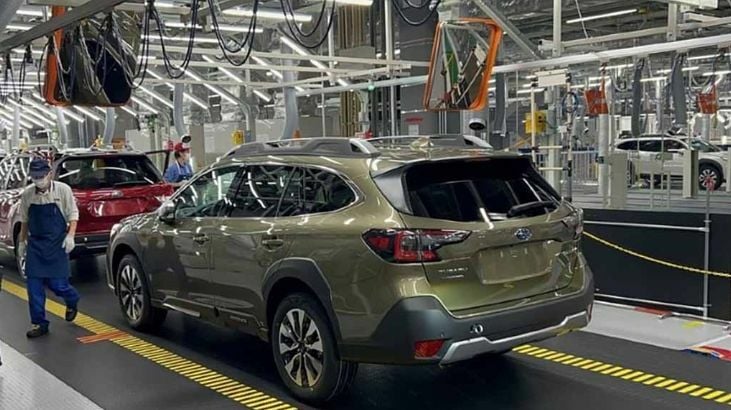Closure of two carmaker’s facilities threatens investor confidence

In a recent announcement, the Federation of Thai Industries (FTI) expressed concerns that the planned closures of Suzuki and Subaru production facilities in Thailand could undermine investor confidence in the auto industry.
Last month, Suzuki Motor (Thailand) revealed its decision to cease all factory operations in Thailand by the end of 2025. The company cited declining sales and intense competition from Chinese electric vehicles (EVs) as key factors in its decision.
In a similar move, Tan Chong Subaru Automotive (Thailand) announced it would stop vehicle manufacturing in Thailand by the end of this year after enduring five consecutive years of financial losses.
President of the FTI’s Auto Parts Club, Supoj Sukpisan highlighted that Suzuki has faced significant challenges in the Thai market, struggling to maintain sales. To combat the influx of affordable Chinese EVs, Suzuki slashed prices by nearly 100,000 baht per unit.
Despite these efforts, the production of Suzuki’s eco-cars plummeted from about 8,000 units per month to less than 1,000 units per month.
Subaru’s operations, which involved importing parts from Japan and Malaysia for assembly and painting in Thailand, also suffered from declining outputs in recent years. Despite relocating some facilities from Malaysia to Thailand, the brand has not been able to reverse its fortunes.
While the closures may not significantly impact local auto parts businesses due to the low production volumes of the past few years, they could deter future investors’ interests in the sector.
Suzuki’s 2023 revenue in Thailand stood at 7.03 billion baht, resulting in a loss of 264 million baht. Subaru Thailand reported revenue of 2.07 billion baht for the same year, with losses amounting to 377 million baht.
Despite these setbacks, the FTI remains optimistic that other Japanese automakers will continue their operations in Thailand, bolstered by the country’s robust auto parts supply chain and skilled labour force.
The FTI also highlighted planned investments by Japanese car manufacturers totalling approximately 150 billion baht over the next five years. This includes 50 billion baht each from Toyota and Honda, 30 billion baht from Isuzu, and 20 billion baht from Mitsubishi, reported The Nation.
Latest Thailand News
Follow The Thaiger on Google News:


























